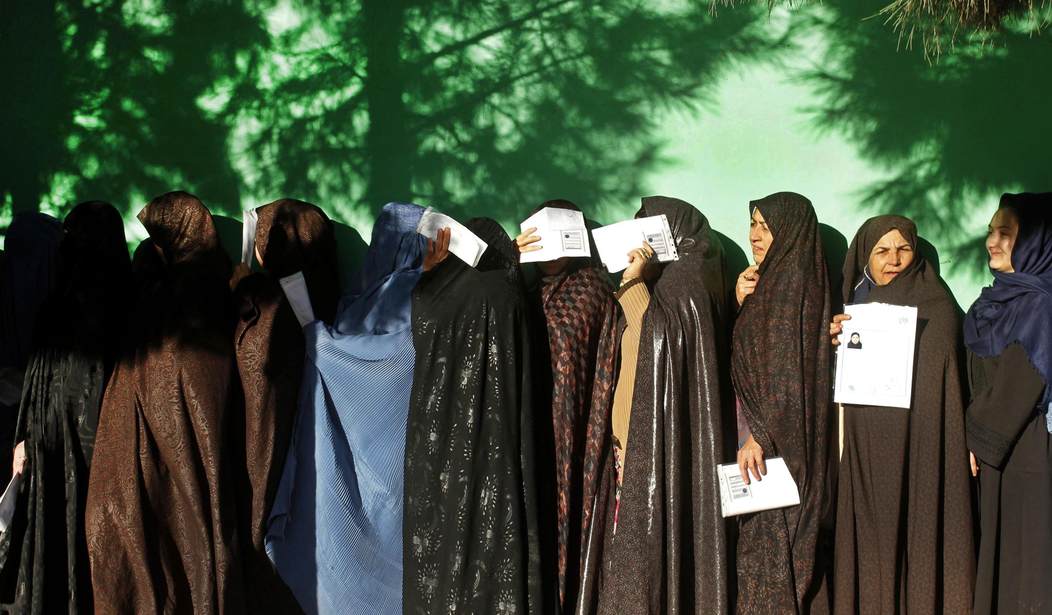Afghan women are choosing to go online to get their education. The Taliban is cracking down on women’s rights, including banning female students from going to a university. Where there is a will, though, there is a way.
The Taliban acts as though they would like to erase women altogether from their country. Besides making absurd demands of modesty, even for store mannequins, and killing a former Afghan woman lawmaker in her own home, they have implemented bans on such things as education for girls and women. Women are no longer allowed to attend college.
Since the Taliban took over in August 2021, as the U.S. withdrew from Afghanistan using Biden’s disastrous plan, life has gotten more and more difficult for girls and women. Since they are not allowed to leave their homes and attend a brick and mortar college, they are turning to online learning. The harsh treatment of women in the name of radical Islamic law has caused the formation of underground education. There are secret schools for girls throughout the country and women are attending college secretly online. When the Taliban announced the ban on women attending a university in December, at least one online U.S. college saw an increase in Afghan female applicants.
The University of the People, which works with thousands of refugees, reported in one week after the Taliban’s new ban that it received 2,208 applications. This is the highest level of interest from Afghan women since the Taliban took over.
“I think that the women who come to us, most of them, stopped at school. They stopped studying, and they were forced to leave school. And as such, they have the desire to study. They want to feel that they’re part of the world,” University of the People President Shai Reshef told The Hill.
The school already has 2,000 Afghan women enrolled and 10,000 Afghan women who’ve applied. And when an Afghan woman is accepted, she is allowed to use a fake name in classes for safety.
A British online educational platform is offering opportunity for Afghan female students, too.
Future Learn, a digital British education platform, also announced it would be providing Afghan women inside the country free access to all of its courses after the Taliban banned women from university.
The company said it has seen a 700 percent increase in visits from Afghanistan since Dec. 22, meaning more than 2,100 new registrations and more than 1,800 enrollments.
Women in Afghanistan will have free access to more than 1,000 courses from different universities and will be given a certificate upon the completion of each course.
It isn’t as easily done as it sounds. There are rural areas without access to internet. There are rolling blackouts in other areas that students have to work around. Internet connections are sporadic. Online universities accommodate the students with homework extensions. Some women studying at the University of the People say that besides the difficulties with electricity, there is the cost of having a stable internet connection. It can be a financial barrier.
There is also a risk with online education. It puts extra anxiety on women in their own homes when relatives come to visit because the women have to hide everything that might indicate studying online.
The University of the People is tuition-free but there is a cost at the end of each class. It has created scholarships for Afghan women funded by private donors. The women receive the scholarships on a first-come, first-served basis.
Education Bridge for Afghanistan is a group that works specifically to get Afghan women and girls an online education. Higher learning institutions like Dartmouth College and New York University recently launched the Global Student Haven Initiative. Its mission is to provide financial aid and support to bring in students affected by crises in their country.
It’s a glimmer of hope for women in sometimes hopeless situations. Receiving an education will provide women with the ability to support themselves and their families, as they did for 20 years before the U.S. withdrew. That assumes, though, that women will be allowed to work outside their homes, which they are no longer allowed to do.








Join the conversation as a VIP Member